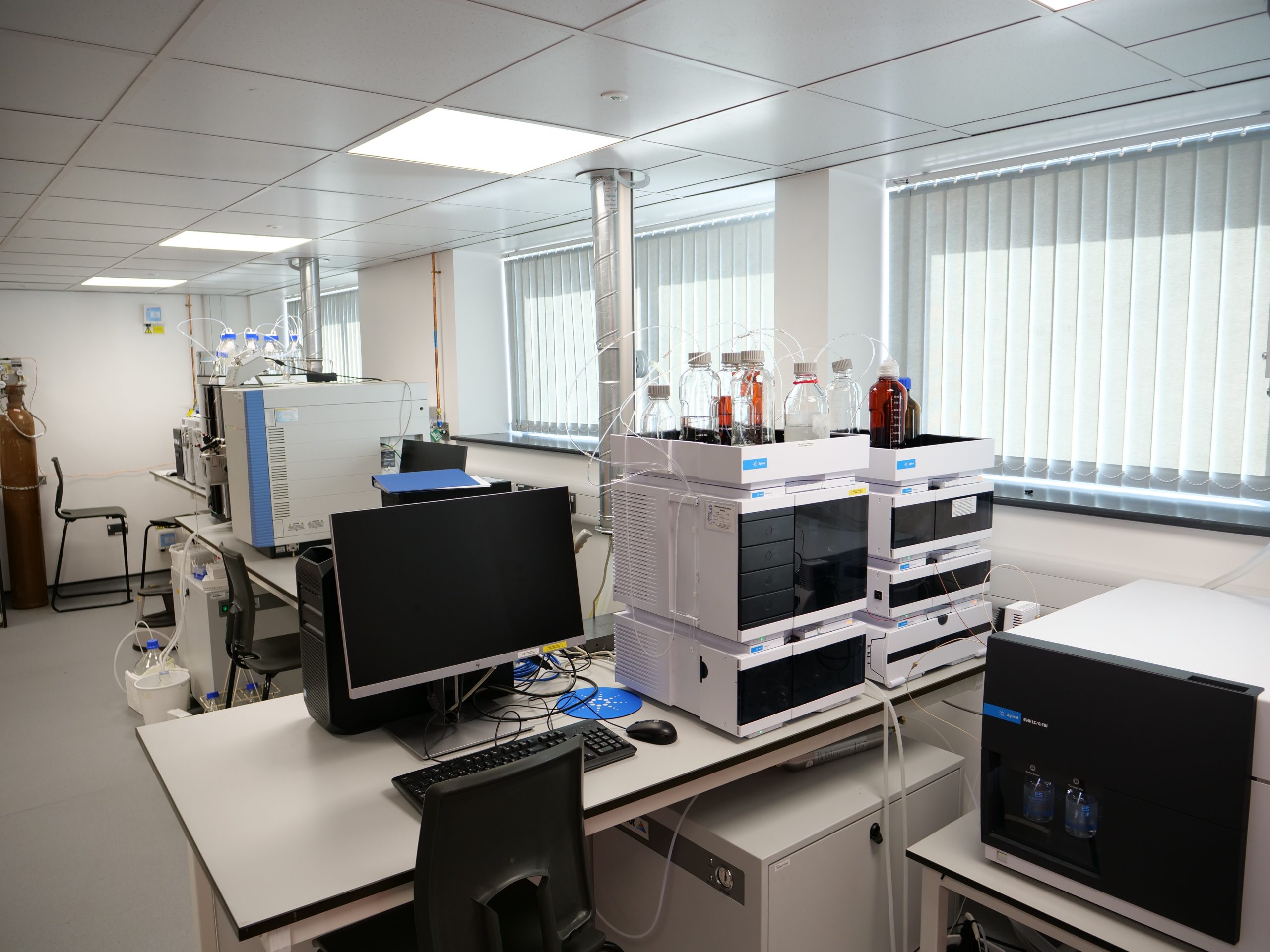
October 24, 2022, by Lexi Earl
Our technology platforms: Molecular Phenomics
The Molecular Phenomics Platform (MPP) was successfully commissioned in autumn 2020, and now resides within the analytical suite of the newly refurbished North Lab at Sutton Bonington. The LCMS system, consisting of a UHPLC front end and high-resolution Quadrupole-Time of Flight tandem mass spectrometer, can resolve thousands of chemical compounds in a single analytical run, across a wide range of concentrations.
In their first piece of work, the Molecular Phenomics Platform helped to explain metabolic difference between several Arabidopsis thaliana mutants and determine the interplay with the microbes colonising the root. The team developed a simplified profiling methodology, isolating >50k features across the study, with genotype, bacterial treatment and their interaction explaining 45% of total metabolome variance. This data was included as part of Gabriel Castrillo’s recent Science paper, exploring how the microbiome influences plant absorption of mineral nutrients and trace elements from soil.
Subsequently, the Molecular Phenomics Platform have refined their workflow for untargeted analysis with the aim of improving the identification of significant molecular features in large data sets. They can now employ a variety of chromatography modes to give wider metabolome coverage, having developed several reverse phase, HILIC and lipidomics focussed methodologies. The team also routinely incorporate Sirius software as their main tool for de-novo identification of metabolites, which conveniently interfaces with a variety of online metabolomics databases. So far, this improved methodology has been used to identify compounds unique for a variety of brewing adjuncts used in large-scale brewing, and more recently to investigate how different brewing yeasts react to stress. The latter study showed that a common response of brewing yeasts to ethanol-induced stress is a major upregulation of lipid production, most notably several long chain fatty acids, linolic acids and fatty acid esters. The work suggests that hardier brewing yeasts may be able to remodel their cell membrane as an adaptive response to stress.

In the future the team will apply this methodology to a wide range of new projects. Following publication of a new predictive model for fruit and vegetable intake, the Molecular Phenomics Platform will conduct a human intervention study, geared toward urinary identifying biomarkers of vegetable consumption. They will also assess how the cacao metabolome changes from harvest to the end of fermentation and attempt to correlate these changes with flavour attributes in chocolate.
The Molecular Phenomics Platform is led by Dr Tristan Dew. For more information about how the Molecular Phenomics Platform can help you, visit our website.
No comments yet, fill out a comment to be the first

Leave a Reply